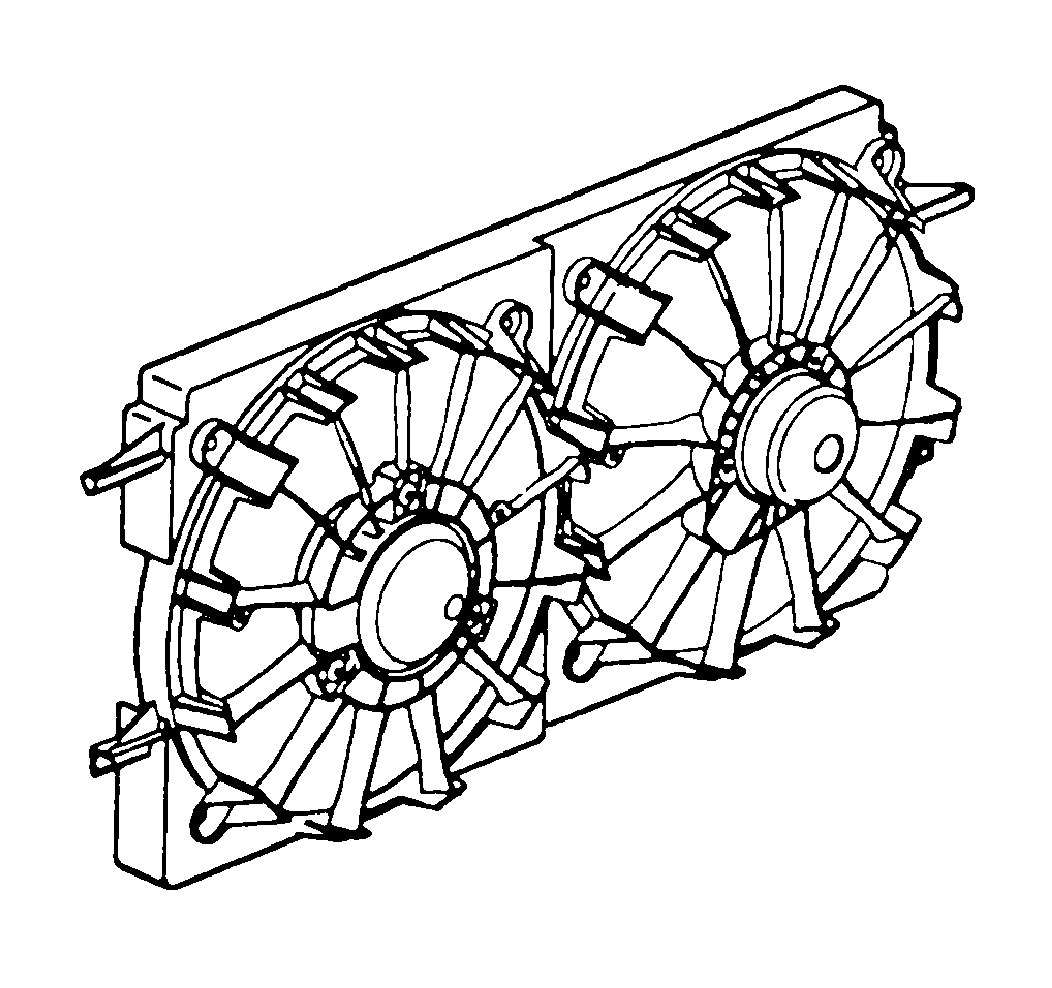The electric cooling fans are used to lower the temperature of the engine coolant flowing through the radiator. They are also used to cool the refrigerant (R-134a) flowing through the A/C condenser.

Operation
The electric cooling fans operate when the engine cooling temperature exceeds a certain value. The cooling fan on this engine is controlled by the PCM. The cooling fan has one speed. The PCM turns the cooling fan ON by grounding the coil of the cooling fan relay when certain conditions are met. When the A/C is requested, the cooling fan will also be turned ON.
Power for the cooling fan motors are supplied through Cool Fan #1 and Cool Fan #2 fuses. The cooling fan relays are energized when current flows from the fuses in the Underhood Junction Block , and through the relay coils to ground through the PCM. The LH Fan Control circuit is grounded for low speed fans operation. During low speed fans operation, both fans run at a slow speed. The RH Fan Control circuit is grounded for high speed operation. During high speed fans operation, both fans run at high speed.
Important: When certain Diagnostic Trouble Codes (DTCs) are present, the PCM may command the cooling fans to run all the time. It is important to perform Powertrain On Board Diagnostic (OBD) System Check prior to diagnosing the engine cooling fans.
If a problem that involves the LH Fan Control circuit exists, DTC P0480 should set. If the problem affects the RH Fan Control circuit, DTC P0481 should set. A problem with the ECT sensor should set DTC P0117, P0118, P1114, or P1115. Any of these DTCs may affect cooling fan operation and should be diagnosed before using the Cooling Fan Diagnosis tables. The Cooling Fan Diagnosis tables should be used to diagnose the PCM controlled cooling fans only, if a DTC has not set.